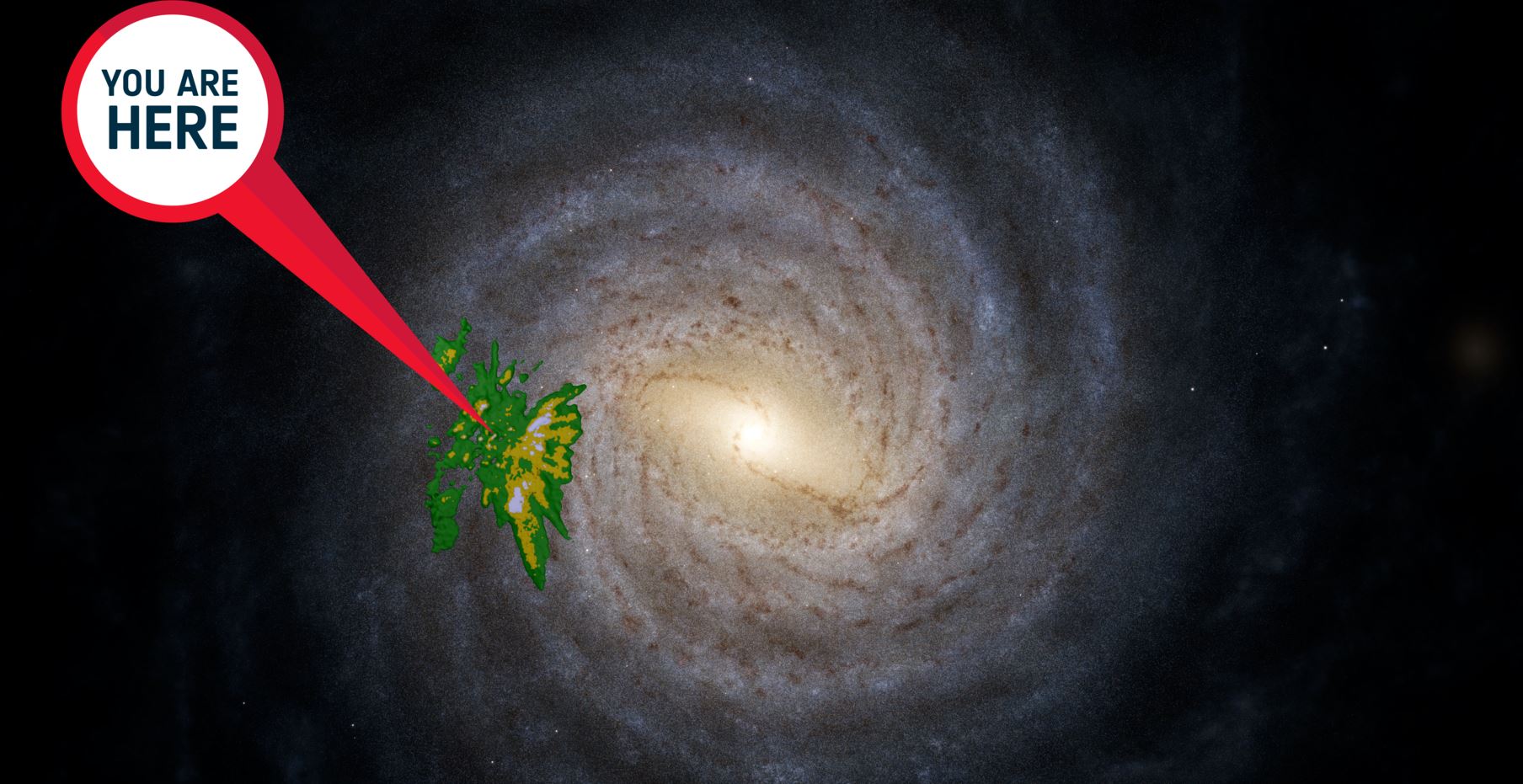By analyzing astrometric data from the European Gaia space telescope, a scientific team was able to obtain the most precise estimate of the mass of the Milky Way. Surprise, it weighs 5 to 6 times less than expected. Enough to profoundly modify the models and better understand dark matter and energy.
The Earth, within the Solar System, has been evolving for approximately 4.5 billion years within one of the arms of our spiral galaxy, the Milky Way. However, observing and measuring the latter is not easy, because billions of stars are in the same plane, with gas clouds and other disturbances. As a result, the models considered to be the most accurate come from our observations of other galaxies, and from laboratory experiments showing a strong influence of dark matter and dark energy.
However, thanks to the European Gaia space telescope, whose mission has now lasted 10 years, astrometry has progressed enormously. To the point of now knowing the position, size, age and movement of hundreds of millions of stars around us.
Our galaxy, less difficult than expected?
An international team, led by astronomers from the Paris Observatory and the CNRS, was able, with data from the most recent Gaia catalog, to re-evaluate the total mass of the Milky Way at approximately 2.06 x 1011 solar masses. The previous estimate was at least 5 to 6 times higher, meaning that the fraction of mass occupied by dark matter was grossly overestimated. It would only be about twice that of ordinary matter, that is to say star systems and gases. A real small revolution for cosmology, which will perhaps have implications for our understanding of the universe and its evolution…
This measurement on a local level of our galaxy will be compared to those on the expansion of the universe that will be produced by the Euclid space telescope, whose scientific mission will soon start. Is dark matter really 6 times more abundant than ordinary matter in the entire cosmos?
Better understand the universe
If more global results are expected, it is also because the Milky Way is a somewhat special galaxy. It is old and has experienced few large-scale disturbances over the last 9 billion years, unlike the majority of observed spiral galaxies, which have all changed a lot over the last 6 billion years.
According to the researchers, this work in any case opens the way to a reassessment of the rotation of large spiral galaxies. Every day, we understand the universe (a little) better…
Source : Paris Observatory

8